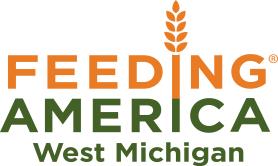Kitchen Volunteers

Agency Staff and Volunteer Civil Rights Training
Benefits of Civil Rights Training
- Ensures equal and consistent treatment of all people
- Provides knowledge of rights and responsibilities
- Provides a mechanism for accountability
- Eliminates illegal barriers that can prevent or deter people from seeking/receiving services
- Promotes dignity and respect while cultivating an atmosphere of equity and inclusion
What are Civil Rights?
- Non-Political rights that apply to all people
- Discrimination based on any of these Civil Rights is prohibited by law
- Any additional requirements agencies or volunteers enforce is a violation
Protected Classes
- Race
- Color
- National Origin
- Sex (including Sexual Orientation and Gender Identity)
- Disability
- Age
Legal Assurances and Protective Laws
- Civil Rights Restoration Act of 1987 – requires groups who received support from the Federal
Government (food, funds, etc.) to comply with all Civil Rights legislation
Definitions and Types of Discrimination
- Discrimination – The practice of treating people differently because of how we have grouped them in our minds according to our stereotypes and prejudices; can be intentional or unintentional.
- Disparate Treatment – when a person is intentionally treated unfairly because they are a member of a protected class.
- Example: only serving people from your congregation at your distribution
- Disparate Impact – unfair treatment that is unintentional but has negative consequence for a member of a protected class.
- Example: asking immigrants to wait to be served until the end of the day because no interpreter is available.
- Retaliation/Reprisal – an intentional act against an individual or their family because of prior activities or behaviors
- Example: a client expressed dissatisfaction for the items they received and their family is refused future service.
- Stereotypes – preconceived beliefs or over-simplified generalizations about a particular group
- Prejudice – set of rigid and unfavorable attitudes toward a particular group that is formed without facts
Faith-Based Institutions
- A group of individuals who are united based on religious or spiritual beliefs
- Food must be kept separate of faith-based activities
- Cannot require participation in rites, prayers, or receive literature in order to receive services
- Must hang written copy of Notice of Beneficiary Rights in a location visible to clients
Reasonable Accommodations
- Must provide the same level of service to all clients, even if it means service is provided in an
alternative way- Example: Reading forms out loud; carrying food to vehicles; sign language interpreters
Customer Service and Experience
- Treat everyone with dignity and respect
- Be patient and polite
- Make sure all clients receive equal treatment
- Recognize clients have different needs
- People with disabilities must be accommodated
- Be open to new ways of serving clients
- Put yourself in the client’s position
Client Data Collection
- Information collected must be kept secure and remain confidential
- Data collected may never be used for purposes other than reporting to Feeding America West Michigan
- Examples of Misuse: verifying addresses; sending flyers; sharing with outside groups like DHHS
Civil Rights Conflicts
- Stay calm and listen
- Don’t be afraid to apologize
- Take time to kindly explain policies
- Try to offer solutions
If you are unsure how to handle a situation, get the Site Coordinator’s help with questions or concerns.
Filing a Civil Rights Complaint
- Everyone has the right to file a complaint
- Never discourage someone from filing a complaint
- Direct those wishing to make a complaint to the coordinator
- Complaints can be written or verbal
- All Civil Rights complaints should be documented, reported to Feeding America West Michigan and submitted to the USDA